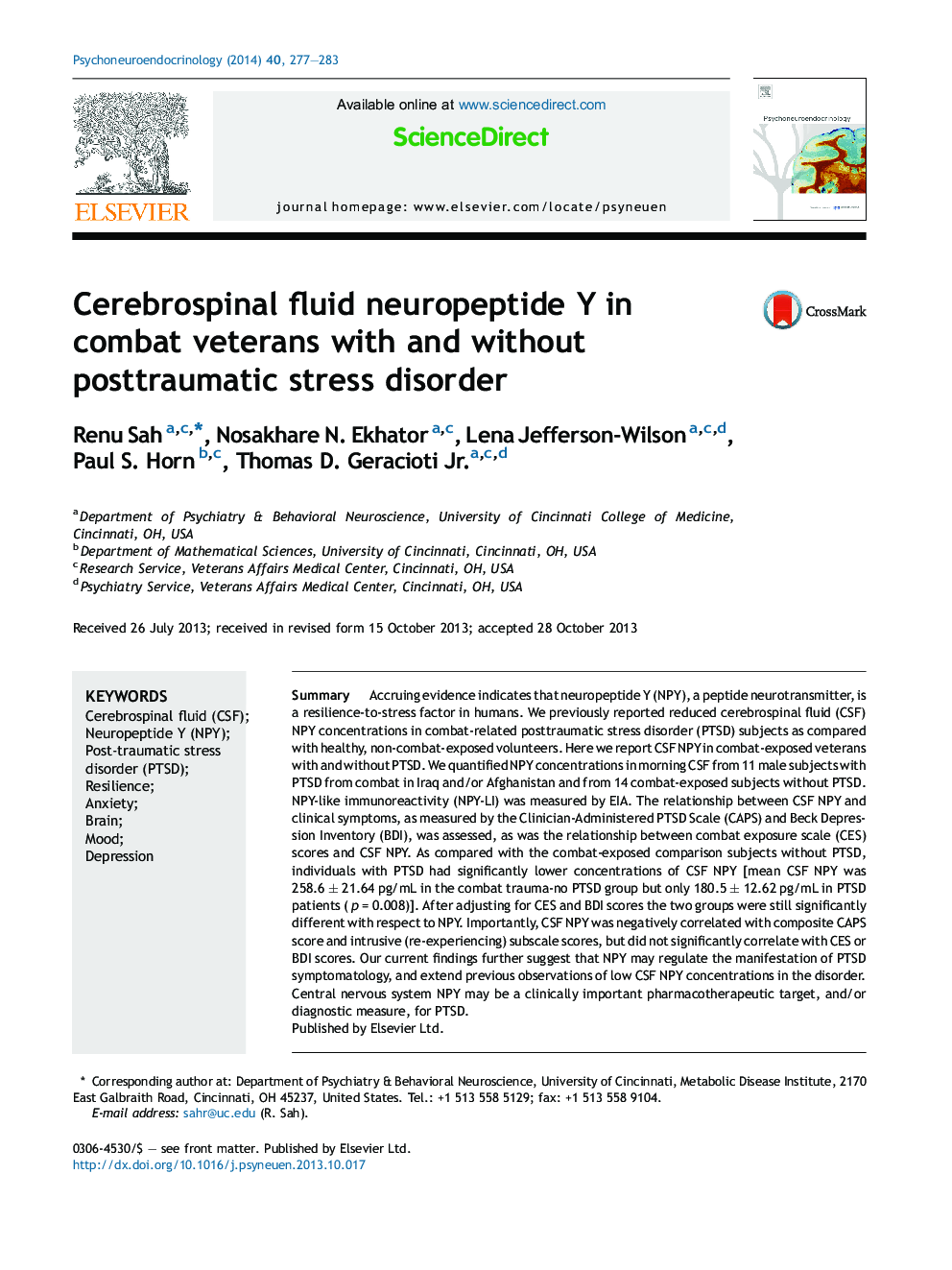| Article ID | Journal | Published Year | Pages | File Type |
|---|---|---|---|---|
| 335786 | Psychoneuroendocrinology | 2014 | 7 Pages |
SummaryAccruing evidence indicates that neuropeptide Y (NPY), a peptide neurotransmitter, is a resilience-to-stress factor in humans. We previously reported reduced cerebrospinal fluid (CSF) NPY concentrations in combat-related posttraumatic stress disorder (PTSD) subjects as compared with healthy, non-combat-exposed volunteers. Here we report CSF NPY in combat-exposed veterans with and without PTSD. We quantified NPY concentrations in morning CSF from 11 male subjects with PTSD from combat in Iraq and/or Afghanistan and from 14 combat-exposed subjects without PTSD. NPY-like immunoreactivity (NPY-LI) was measured by EIA. The relationship between CSF NPY and clinical symptoms, as measured by the Clinician-Administered PTSD Scale (CAPS) and Beck Depression Inventory (BDI), was assessed, as was the relationship between combat exposure scale (CES) scores and CSF NPY. As compared with the combat-exposed comparison subjects without PTSD, individuals with PTSD had significantly lower concentrations of CSF NPY [mean CSF NPY was 258.6 ± 21.64 pg/mL in the combat trauma-no PTSD group but only 180.5 ± 12.62 pg/mL in PTSD patients (p = 0.008)]. After adjusting for CES and BDI scores the two groups were still significantly different with respect to NPY. Importantly, CSF NPY was negatively correlated with composite CAPS score and intrusive (re-experiencing) subscale scores, but did not significantly correlate with CES or BDI scores. Our current findings further suggest that NPY may regulate the manifestation of PTSD symptomatology, and extend previous observations of low CSF NPY concentrations in the disorder. Central nervous system NPY may be a clinically important pharmacotherapeutic target, and/or diagnostic measure, for PTSD.
